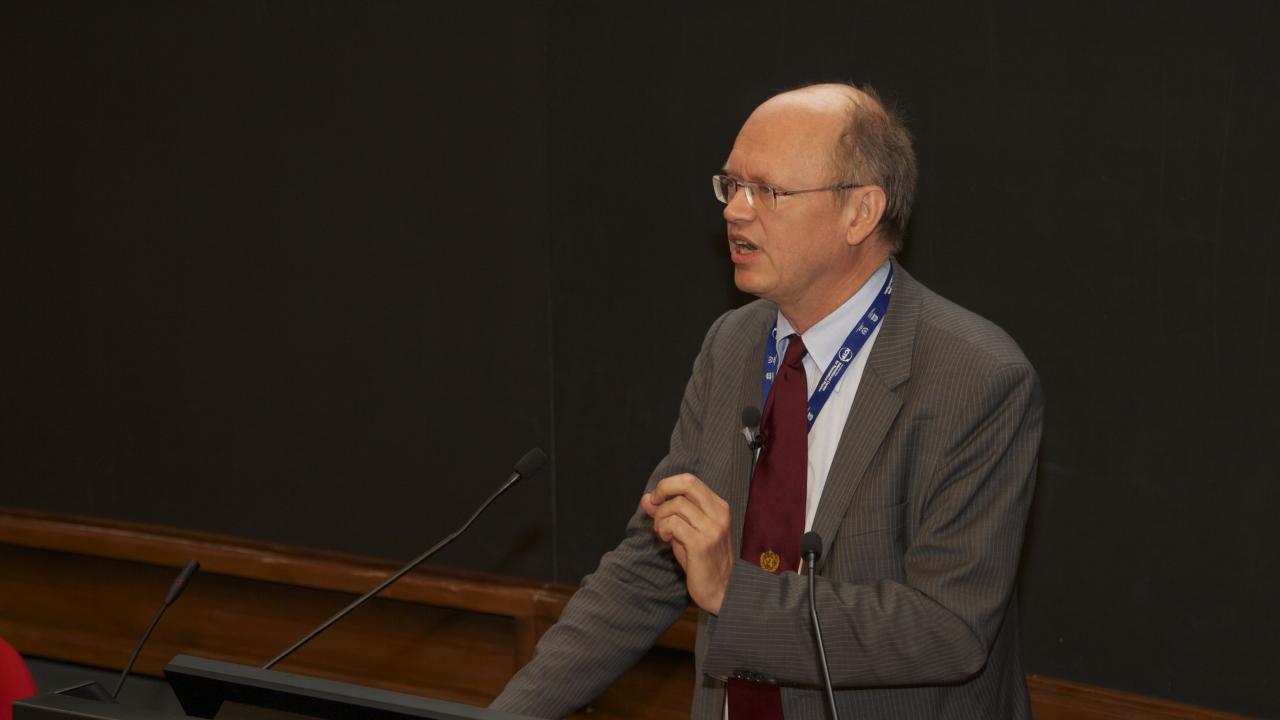
“Climate, like football, is something where everyone is an expert,” said the World Meteorological Organisation’s (WMO) Secretary General Michel Jarraud at the beginning of his remarks in this morning’s session on “The Future Earth.”
Yet the session, the beginning of the second day of 50th anniversary festivities at ICTP, featured talks by two men who could reasonably be considered the world’s leading climate experts. Introduced by ICTP climate scientist Filippo Giorgi, Jarraud and current Intergovernmental Panel on Climate Change (IPCC) Vice-Chair Jean-Pascal van Ypersele spoke about the challenges of climate change and how scientists and policymakers must work together to overcome them.
Jarraud outlined the highs and lows revealed by climate scientists over the past several decades. Science has enhanced prediction and early warning systems, so fewer people are now dying from extreme weather events such as floods and droughts compared with the casualties 60 or 70 years ago. Nevertheless, the economic toll of increasingly extreme events, worsened by the highest atmospheric levels of carbon dioxide, methane, and nitrous oxide in the last 800,000 years, is rising significantly.
Jarraud called for a "global framework for climate services" to present better packages of scientific information to politicians. "Scientific progress is not translating into concrete products for decision makers," Jarraud said. The global framework will focus on the expertise of centres like ICTP, he added, praising the Centre's ability to build "capacity in developing countries and keeping scientists there."
Van Ypersele introduced the IPCC, founded in 1988 by the UN Environmental Program and the WMO, as "the first climate service" of the kind Jarraud was advocating. The IPCC's Fifth Assessment Report, the result of several years of work by 831 scientists from around the globe, has already published the work of its three Working Groups on physical science, adaptation, and mitigation, and will release the synthesis of these reports in early November.
In addition to the challenges of adapting to climate changes already occurring and reducing greenhouse gas emissions, van Ypersele also stressed the necessity of tackling problems of poverty, energy, environmental quality, and sustainable development to protect the Earth's most vulnerable human citizens from the impacts of climate change.
In a conversation after his talk, van Ypersele explained that scientists from developing countries are "an essential part of the IPCC. If the IPCC has credibility, part of it is due to our inclusiveness." At least one scientist from the developing world has a leading hand in shaping each IPCC chapter, and van Ypersele notes that the IPCC "hopes to be even more inclusive in the future."
Van Ypersele, who participated in an ICTP training course on the physics of flow in the atmosphere, oceans, and deserts in 1980, also recognised ICTP's efforts in building capacity in climate research. Another attendee of the same course in 1980 was Vicente Barros of Argentina, who is the current Co-Chair of IPCC Working Group II. ICTP's contributions have both appeared as research cited in the report and enriched the pool of scientists eager to take part in the work. "ICTP is at the forefront of inclusion of developing country scientists in physics activities, including in climate physics," he said. "Many future authors for IPCC reports from developing countries will have been trained here."
















